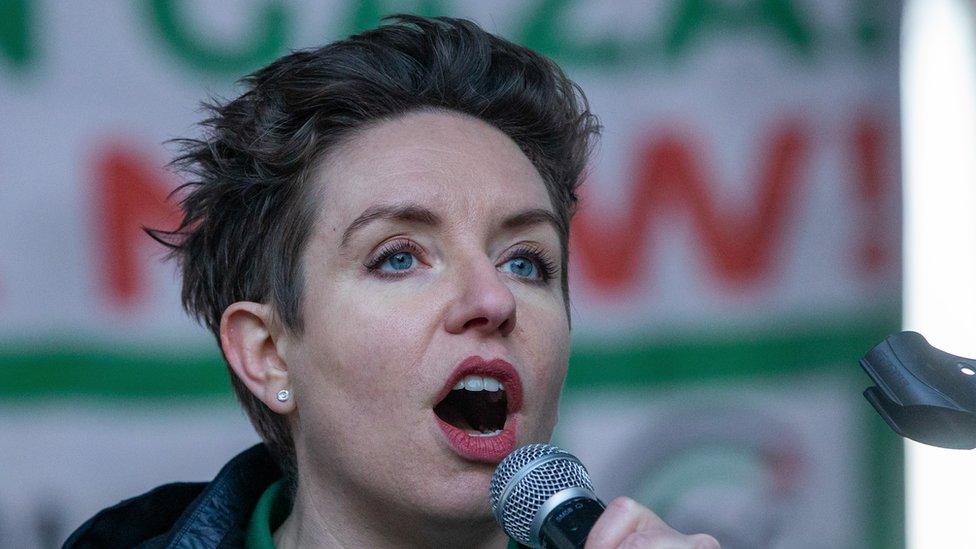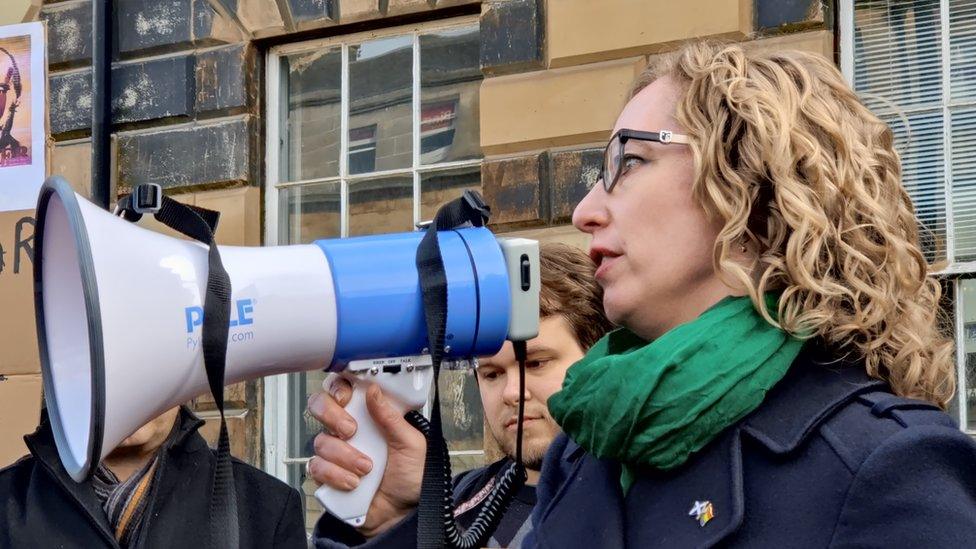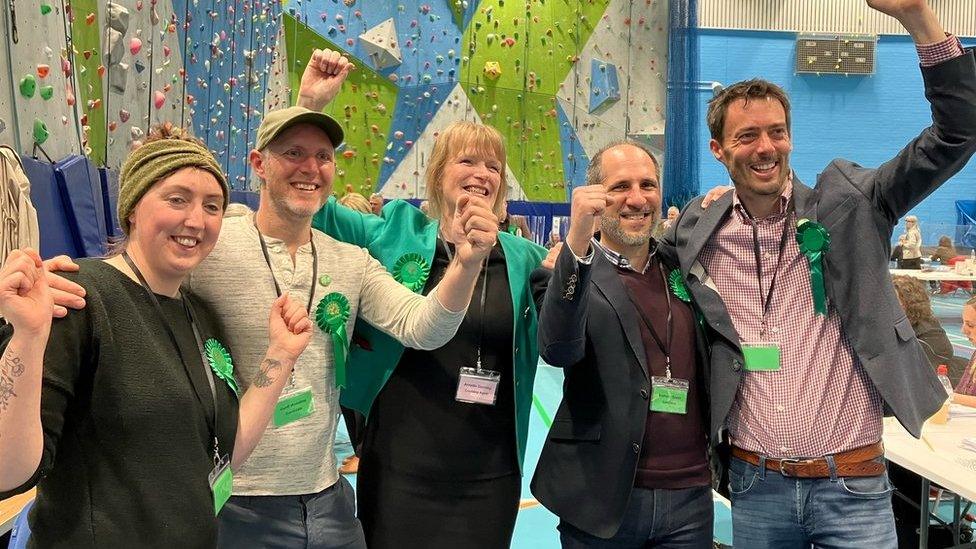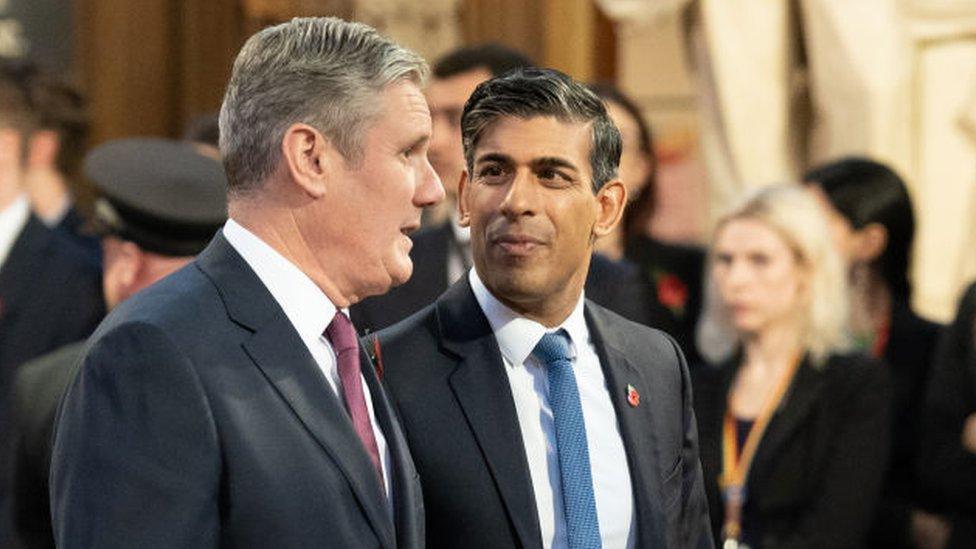Greens to stand throughout England and Wales at next general election
- Published

Carla Denyer is the Green co-leader, alongside Adrian Ramsay
The Green Party is aiming to field candidates in every seat in England and Wales at this year's general election, its co-leader has said.
Carla Denyer told the BBC it was already "good way through" selecting candidates to fulfil the aim, which would mark a first for the party.
She said her party was open to talks with other parties about possible electoral pacts.
But she ruled out withdrawing candidates unless other parties do too.
The Greens are aiming to translate the record gains they made at last year's English local elections into increased representation at Westminster.
Their only current MP, two-time former leader Caroline Lucas, is due to stand down at the next general election, which is almost certain to take place this year.
Despite plans to stand in every constituency, Ms Lucas's Brighton Pavilion seat is among a handful of constituencies where the party plans to focus its resources.
Speaking to the BBC, Ms Denyer said other targets include Bristol Central, a newly-created constituency largely replacing the Labour-held Bristol West seat, where she will be the party's candidate.
The party is also targeting two more traditionally Tory areas: North Herefordshire and Waveney Valley, another newly-created seat straddling the border between Norfolk and Suffolk.
Standing throughout England and Wales would require fielding 575 candidates, 103 more than at the 2019 election, when it stood in 472 constituencies across both countries.
At the last election, the party struck an anti-Brexit pact with the Liberal Democrats and Plaid Cymru, which saw them agree not to stand against each other in dozens of seats.
It followed a series of locally-struck deals with the Lib Dems at the 2017 election that saw Green candidates stand aside in various constituencies.
But that so-called "progressive alliance" led to a backlash within the party, with some figures arguing Labour benefitted most despite not agreeing to withdraw any candidates itself.
Some figures within the party have argued that fielding a full slate of candidates would prevent local Green parties coming under pressure from Labour to stand down.
And at its autumn conference last year, party members voted, external to "maximise" candidate numbers, with an ambition to stand in every English and Welsh seat.
'Door is open'
"The Green Party is collaborative by nature. We're always keen to work with people on areas where we agree," Ms Denyer said when asked about possible election pacts.
But she added: "We're not about to roll over and hand over any unilateral gifts to other parties.
"Our position is that our door is open, it's always open, and we are prepared to talk to other parties, but we're not going to be standing down unliterally.
"If there is an opportunity to co-operate, we're open to that, and we've always made that clear so I think the other parties know it.
"But in the meantime, we are standing candidates in every single seat, so that everyone has the opportunity to vote Green."
Local election success
Prime Minister Rishi Sunak has said his "working assumption" is the next election will take place in the second half of 2024.
The Greens had its best ever set of local elections last year, gaining more than 240 seats across England.
A large part of that success came from targeting rural, traditionally Conservative areas.
In Brighton and Hove, though, they lost almost two thirds of their seats, delivering the council into Labour control.
Ms Denyer sought to dampen expectations ahead of this year's local polls in May, cautioning that the "absolute number" of any potential gains would be limited by the smaller number of councils being contested this time round.
The Greens are currently polling at around 6%, behind Reform UK and the Liberal Democrats.
The Scottish Greens, a separate party, have been sharing power with the SNP since 2021, following elections to the devolved Scottish Parliament.
Related topics
- Published26 July 2022

- Published5 May 2023

- Published31 December 2023
